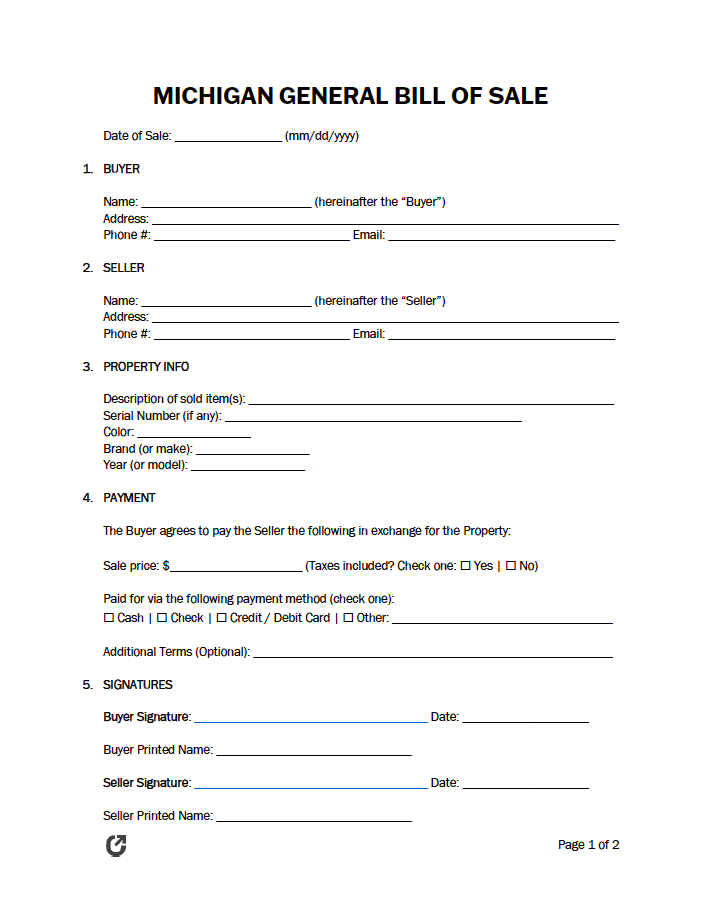Michigan General Bill of Sale Form
A Michigan general bill of sale form encapsulates a transaction between a buyer and seller. Individuals use this document for items that do not belong to another, more specific category. For example, when exchanging car ownership, both parties would use a motor vehicle bill of sale. However, when transferring a picture frame, they would choose a general bill of sale form to record the details. When filling out the document, each person must enter truthful information about themselves and the item for sale. Otherwise, the bill of sale becomes null.
| Signing Requirements: The purchaser and vendor must sign digitally or by hand. |
What is a Michigan General Bill of Sale?
A Michigan general bill of sale supplies the framework for transferring goods from one person to another. It organizes the information in an easy-to-read format, thus allowing the buyer and seller to reference it when needed. Other parties or entities can also review it to find the details of the sale and the people involved. In addition, if the new owner wishes to re-sell the item, they can present the bill of sale to prove their ownership, its condition, and the amount they originally paid for it.
Does Michigan Require a Bill of Sale?
No, Michigan does not require bill of sale forms for transactions. Nonetheless, the state recommends completing the document because it proves the transfer happened. Without it, both parties can potentially make false claims, resulting in legal issues. For example, a seller could accuse a buyer of stealing their property. To limit these concerns, each person should honestly fill out the bill of sale and sign it.
Is Notarization Optional?
Yes, Michigan residents have the option of notarizing bill of sales. In other words, the state does not require a notary public to acknowledge the document. However, many individuals still opt for it because it verifies the transaction and gives the form more legal power.
